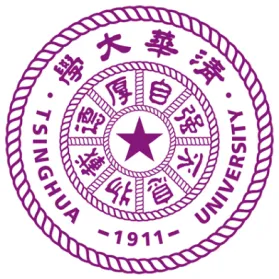Albert Montufar-Helu had barely spent a week in China before realizing this was where he wanted to live.
He first visited back in 2015 and immediately fell in love with this vast country and its vibrant culture—it was like nothing he’d ever experienced before. After returning to his native Mexico, he started plotting a route back to China straight away.
Eventually, he applied for the world-renowned Tsinghua Global MBA. Ranked first in China and 29th in the world in the QS Global MBA Rankings 2025, it is one of a number of Chinese MBAs advancing towards the top of global rankings.
Albert built his career at the intersection of Mexico-China business relationship. Here, he recounts his journey from Mexico to China, how his MBA has helped him launch a career in finance and payments, and how he has helped Chinese companies to do business in Mexico.
Why Albert chose to study an MBA in China

One of the quirks of an MBA is that the bulk of the subject matter—marketing, operations, management, finance, economics—stays broadly the same no matter the business school. In many cases, the real differentiator between programs is the context in which it is studied. For Albert (pictured), an MBA in China could place these broad business concepts into a localized context.
“You need to specialize that knowledge based on one specific region,” he explains. “That is to say, if I'm coming to the Tsinghua MBA in China, it’s not to learn what I could learn in Harvard or Stanford. I want to learn how e-commerce, business management, and finance is done in China—and how that is related to the global business environment.”
Albert also knew that an MBA could help him develop his network in China. That’s especially important for international students, who may not otherwise have an avenue into the local job market or be able to forge local connections that can be vital for opening career opportunities.
Albert highlights how an MBA can be “a great platform for meeting new people, meeting new classmates, and developing your network”. For him, enrolling into an MBA was far more than a route back to the country he fell in love with—it was a chance to build a career here. And the Tsinghua MBA proved to be the perfect platform to do that.
The Tsinghua Global MBA
It is perhaps that teaching of local knowledge within a global context that marks the Tsinghua Global MBA out as a top-tier program. Albert says that from day one of the MBA, there were courses which helped him understand China’s place in the global economy.
“You have courses that are specifically targeted for you to understand Chinese culture,” he explains. “You study business cases about Chinese companies. You have different classes looking at the Chinese stock markets. And also courses that look at how China transformed from an agricultural society to an industrial one, then from an industrial society to a technological one.”
Albert also highlights how the Tsinghua MBA showed him the intricacies involved when a Chinese company wants to expand overseas: he learnt about international business development, the developing role of AI in the country, and more generally about the industries where China excels. These experiences would turn out to be ideal preparation for his future career.
After completing the main MBA curriculum in his first year, in year two of the program Albert focused on gaining experience. He did this by completing internships at ride-sharing app DiDi, online retailer JD.com, and finally full-time employment at Amazon. Each of these experiences were centered around international operations and strategy, and in some cases about how a business might expand from China to Latin America: a fitting synthesis of his background and education to date.
Albert’s international background coupled with his time at Tsinghua proved to be the perfect launchpad for a career in China. He’s now working for a Chinese payments company, specializing in the payments of Chinese companies in Latin America and other regions. Besides that, he also does some ad-hoc consultancy work with Chinese companies, including EV companies, new energy companies, ecommerce companies, and manufacturing companies about how they can expand to Mexico, he explains.
“Now, the business models that are driving several global industries, such as EVs and batteries, were conceived in China. Therefore, you have to come here to study these business models, because they not only englobe Chinese manufacturing, R&D and supply chain, among other domains, but they also englobe Chinese culture and the Chinese mindset."
Albert has managed to forge a career for himself in China—but says it simply wouldn’t have been possible without the Tsinghua MBA.
Advice for international students
So what should you know about studying in China as an international student? Albert, who has been in the country for more than seven years now, says you need to make a short and long-term plan if you’re serious about launching a career there.
While the MBA can help you to launch your career in China by starting you on your journey—as an increasing number of international students are finding—Albert suggests you need to look four, five, or six years ahead to see your career blossom.
“You firstly need to learn the language,” Albert says. Even then, he suggests that you need patience to fully immerse yourself and make the country your home. It takes a while to build a network, he says. "It takes a long time just to understand the people. The culture is not like the US, Europe or Latin America. I'd say you probably need at least five years here to establish yourself properly."
It only took a couple of weeks before Albert decided he wanted to build a life for himself in China—but it took several years to make it a reality. That’s because an MBA isn't a short-term solution. To get to where you want to go, you have to combine it with clear, staged career plan. For Albert, that long-term focus has paid dividends.



